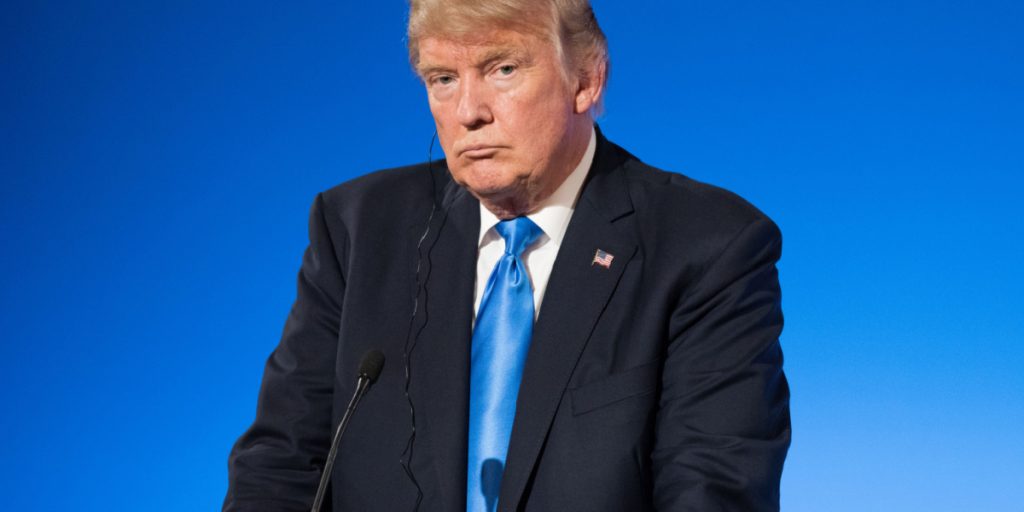AI-generated images depicting former President Donald Trump amidst groups of Black supporters have surfaced online, raising alarms as the general election nears.
Others are reading now
Unnatural lighting and overly precise details hint at the artificial creation of certain images showing former President Donald Trump amidst Black supporters. These images, not attributed to Trump’s campaign, surfaced as he attempts to appeal to Black voters — a demographic largely loyal to President Joe Biden.
A recent BBC report brought these AI-generated images into the spotlight, sparking concerns about their proliferation as the general election in November draws near.
Experts warn of the potential for AI to fabricate convincing images that could target and mislead various demographic groups, including Latinos, women, and older male voters, stressing the urgent need for regulations governing this technology.
AI’s Power to Deceive
The Center for Countering Digital Hate, in a recent study, showcased the ease with which deepfake images can be produced using popular AI tools. These included fabricated scenes of Trump with Russian figures, Biden tampering with election results, and armed individuals at voting locations, despite claims from AI platforms of restrictions against such manipulations.
Also read
The Center for Countering Digital Hate evaluated recent AI-created images of Trump with Black supporters, finding that one initially made for humor is now being circulated by Trump’s supporters as proof of his Black voter base.
Imran Ahmed, CEO and founder of the center, emphasized the need for increased efforts from both social media and AI companies to shield users from the negative impacts of artificial intelligence.
“If a picture is worth a thousand words, then these dangerously susceptible image generators, coupled with the dismal content moderation efforts of mainstream social media, represent as powerful a tool for bad actors to mislead voters as we’ve ever seen,” Ahmed stated. “This is a wake-up call for AI companies, social media platforms and lawmakers – act now or put American democracy at risk.”
The Responses
The circulation of AI-generated images depicting former President Trump with Black supporters has caused concern across the political spectrum, raising fears about misleading representations of Trump’s support among African Americans. Within Trump’s circle, there’s a shared frustration that these artificial portrayals may be detrimental to the party’s efforts to engage Black voters.
Diante Johnson, president of the Black Conservative Federation, offered a clear guideline: “If you see a photo of Trump with Black folks and you don’t see it posted on an official campaign or surrogate page, it didn’t happen. It’s nonsensical to think that the Trump campaign would have to use AI to show his Black support.”
The Broader Implications of AI Misinformation
There’s an expectation among experts that AI-generated deepfakes will be increasingly used to target distinct demographics in crucial swing states, potentially affecting Latinos, women, Asian Americans, older conservatives, and others. The global electoral calendar amplifies these concerns, as numerous countries face the threat of deepfake disruptions.
A notable instance occurred in January, when New Hampshire voters received a robocall imitating Biden’s voice with misleading voting information. This act, admitted by a political consultant, may represent an early instance of AI interference in U.S. elections.
A Stanford University study highlighted how AI’s impact on trust could erode public confidence. Discovering that online images might be untrustworthy can lead people to question credible information sources. Researchers observed, “As AI-generated content becomes more prevalent and difficult to distinguish from human-generated content, individuals may become more skeptical and distrustful of the information they receive.”
AI’s role in disseminating misleading information about voting and elections adds layers of complexity to distinguishing truth from falsehood, potentially eroding democratic trust and amplifying political division.
Joe Paul, a business leader advocating for increased digital literacy within communities of color, remarked, “AI simply accelerated and pressed fast forward on misinformation.”
“The goal is to empower folks to critically evaluate the information that they encounter online. The ability to think critically is a lost art among all communities, not just Black communities,” Paul stated.

